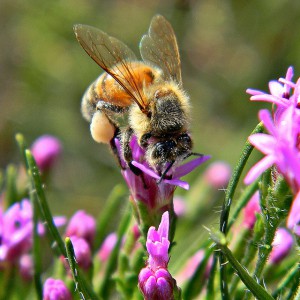Large-scale study correlates neonicotinoid use with honeybee decline
A recent study published in Scientific Reports has investigated the link between neonicotinoid use in oil rape fields and pollinator mortality in England and Wales. Oil rapeseed is typically planted using neonicotinoid-coated seeds, is the most commonly planted oilseed in Europe, and is mass flowering, which makes it extremely attractive to honeybees and other pollinators. By combining large data sets with five years of data on pesticide usage and over 11 years of bee health observations, researchers correlated the increase in the use of the neonicotinoid imidacloprid with honey bee colony losses. If this correlation is the result of a causal link, then honey bees are likely being exposed to imidacloprid while foraging on nectar and pollen from flowering rapeseed fields. The study also demonstrated that the use of seed coated neonicotinoids has reduced the use of additional foliar sprays, highlighting the trade-offs between the benefits of neonicotinoids for farmers and negative effects on bees.



